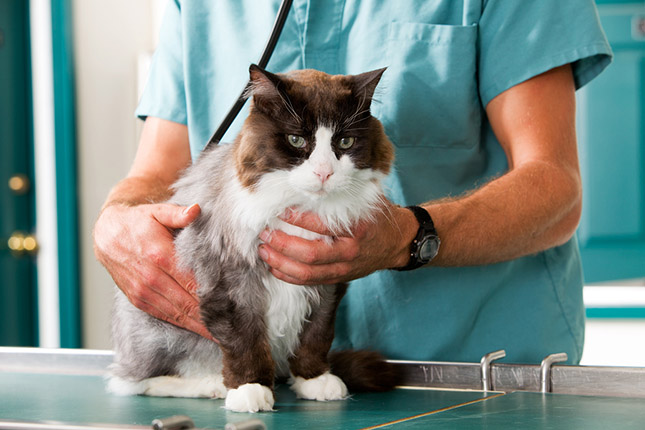Second-Hand Smoke and Your Pet

We all know that smoking is bad for our health, but what might surprise many pet-owners are the dangerous effects that second-hand smoke can have on their four-legged loved ones after some time.
“There are studies that show that dogs exposed to large amounts of second-hand smoke have significant changes to their lung tissue over time,” said Heather Wilson-Robles, assistant professor at the Texas A&M College of Veterinary Medicine & Biomedical Science (CVM). “These changes range from fibrosis, or scarring of the lung tissue to precancerous and even cancerous lesions.”
A case report published in 2012 showed a cat developing a tracheal carcinoma after being exposed to large amounts of second-hand smoke in the home, and another study in 2002, published by the group at Tufts, showed that second-hand smoke may double the risk of lymphoma development in cats.
Many veterinarians also feel that symptoms in their patients with respiratory diseases such as asthma or bronchitis improve if the owner’s quit smoking. For those that do smoke, there are a few ways to tell if your habit is affecting your pet’s health.
“For animals with asthma, allergic lung disease, or bronchitis you might see a dry hacking and progressive cough,” said Wilson-Robles. “Asthma patients may have more frequent asthma attacks and their symptoms may be more difficult to manage medically. Animals with allergic lung disease will often have more severe symptoms if they live in a smoking household and these symptoms may persist all year round rather than being seasonal.”
Disposing of your tobacco may also prove hazardous to the wellbeing of your pet if they tend to be nosy or like to dig in the trash. “Ingestion of tobacco products may cause gastrointestinal upset such as vomiting, diarrhea, drooling, increased salivation and trembling,” said Wilson-Robles. “High doses of nicotine may lead to excitement, constricted pupils, odd behavior, seizures and even death. Cigarette butts are especially dangerous as they contain 25% of the nicotine found in the cigarette.”
While the most efficient way to treat second-hand smoke problems with your pet is for the owner to quit using the substance, there are other ways to keep your pet safe and keep your habit.
“Pet owners need to immediately quit smoking around the animal and wash their hands thoroughly after smoking before touching the pet or anything it may come in contact with,” said Wilson-Robles. “If your dog or cat eats a cigarette, chewing tobacco, cigar, etc. call an emergency clinic nearby for directions on how to treat this toxicosis. In most cases the tobacco will induce vomiting by itself, but if not vomiting should be induced to clean the stomach out and prevent systemic and possibly even lethal nicotine toxicosis.”
If you believe your pet is suffering from tobacco-related issues of any kind schedule an appointment with your local veterinarian immediately.
Pet Talk is a service of the College of Veterinary Medicine & Biomedical Sciences, Texas A&M University. Stories can be viewed on the Web at vetmed.tamu.edu/news/pet-talk. Suggestions for future topics may be directed to editor@cvm.tamu.edu.


